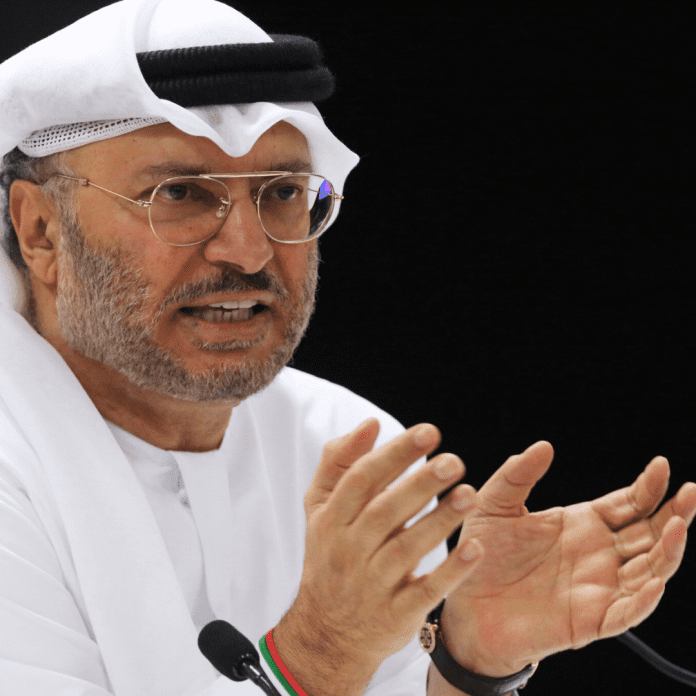Portugal Joins Growing List of Nations Recognizing Palestinian Statehood in Urgent Call for Peace
In a significant diplomatic shift, Portugal is set to follow in the footsteps of several other nations by officially recognizing the state of Palestine. This move, which is anticipated to be announced in the coming days, aligns with a broader international consensus advocating for Palestinian statehood as a crucial component of the long-stalled two-state solution. The decision comes in the wake of a coordinated effort by 15 Western nations, which collectively issued the “New York Call” statement late Tuesday, urging global acknowledgment of Palestine as a sovereign state.
Background & Context
The call for the recognition of Palestinian statehood has gained momentum in recent years, particularly among European nations. As of now, approximately 147 out of the 193 member states of the United Nations have recognized Palestine as a state, a reflection of growing international support for Palestinian self-determination amid ongoing tensions between Israel and Palestine.
Portugal"s impending recognition follows similar moves by countries such as Ireland, Norway, and Spain, which all declared their support for Palestinian statehood last year. Historically, several Eastern European nations, including Bulgaria, Hungary, Poland, and Romania, recognized Palestine as early as 1988, setting a precedent for diplomatic acknowledgment in the region.
Key Developments
The “New York Call” statement endorsed by the 15 nations emphasizes that recognizing Palestine is an essential step towards achieving lasting peace in the region. The statement invites other countries that have yet to recognize Palestine to join this unified stance. Among the nations included in this call are Malta, Andorra, Australia, Canada, Finland, Luxembourg, New Zealand, Portugal, and San Marino.
Portugal"s decision is anticipated to be formally announced soon, with the country"s leaders expected to outline their rationale for this significant diplomatic move. Meanwhile, Montenegro is taking a cautious approach, planning consultations with President Marcelo Rebelo de Sousa and parliamentary parties before making a final decision.
In the UK, Prime Minister Keir Starmer has indicated that the government will recognize Palestinian statehood in September unless the Israeli government takes meaningful steps to alleviate the humanitarian crisis in Gaza. French President Emmanuel Macron has also announced that France will formally recognize Palestine during the upcoming United Nations General Assembly, further solidifying the international push for recognition.
\n\n
Image for Portugal Joins Growing List of Nations Recognizing Palestinian Statehood in Urgent Call for Peace
Broader Impact
Experts believe that Portugal"s recognition of Palestine could have profound implications for the Israeli-Palestinian conflict. By joining the ranks of countries advocating for Palestinian statehood, Portugal not only reinforces international support for a two-state solution but also potentially influences other nations to reconsider their stances. The recognition may embolden Palestinian leadership in their pursuit of sovereignty and self-governance, while simultaneously increasing pressure on Israel to engage in substantive negotiations.
Historically, the recognition of Palestine has been a contentious issue, often viewed through the lens of geopolitical alliances and regional stability. The shift in recognition patterns among Western nations signals a growing acknowledgment of the need for a balanced approach to the conflict, one that addresses the aspirations of both Israelis and Palestinians. This evolving landscape may also affect how international organizations, such as the United Nations, engage with the Palestinian territories and Israel moving forward.
What"s Next
As Portugal prepares to officially recognize Palestine, the international community will be closely monitoring the reactions from Israel and other nations. The upcoming UN General Assembly in September is poised to be a pivotal moment, with several countries, including France and the UK, signaling their intent to recognize Palestine. Such developments may catalyze further diplomatic initiatives aimed at resolving the longstanding conflict.
Additionally, the ongoing humanitarian situation in Gaza remains a critical factor influencing international sentiment. Should the Israeli government fail to take significant action to address the crisis, it may prompt even more nations to follow Portugal"s lead in recognizing Palestinian statehood. This unfolding situation underscores the urgency for a renewed dialogue centered on peace and coexistence between Israelis and Palestinians, emphasizing the need for international cooperation and commitment to a fair resolution.

Image for Portugal Joins Growing List of Nations Recognizing Palestinian Statehood in Urgent Call for Peace


![[Video] Heavy clashes and gunfire reported in Baghdad, Iraq](/_next/image?url=%2Fapi%2Fimage%2Fthumbnails%2Fthumbnail-1768342239932-848qsh-thumbnail.jpg&w=3840&q=75)




![[Video] Gunfire between Iraqi security forces and Sadr militias in Baghdad](/_next/image?url=%2Fapi%2Fimage%2Fthumbnails%2Fthumbnail-1768343508874-4redb-thumbnail.jpg&w=3840&q=75)
